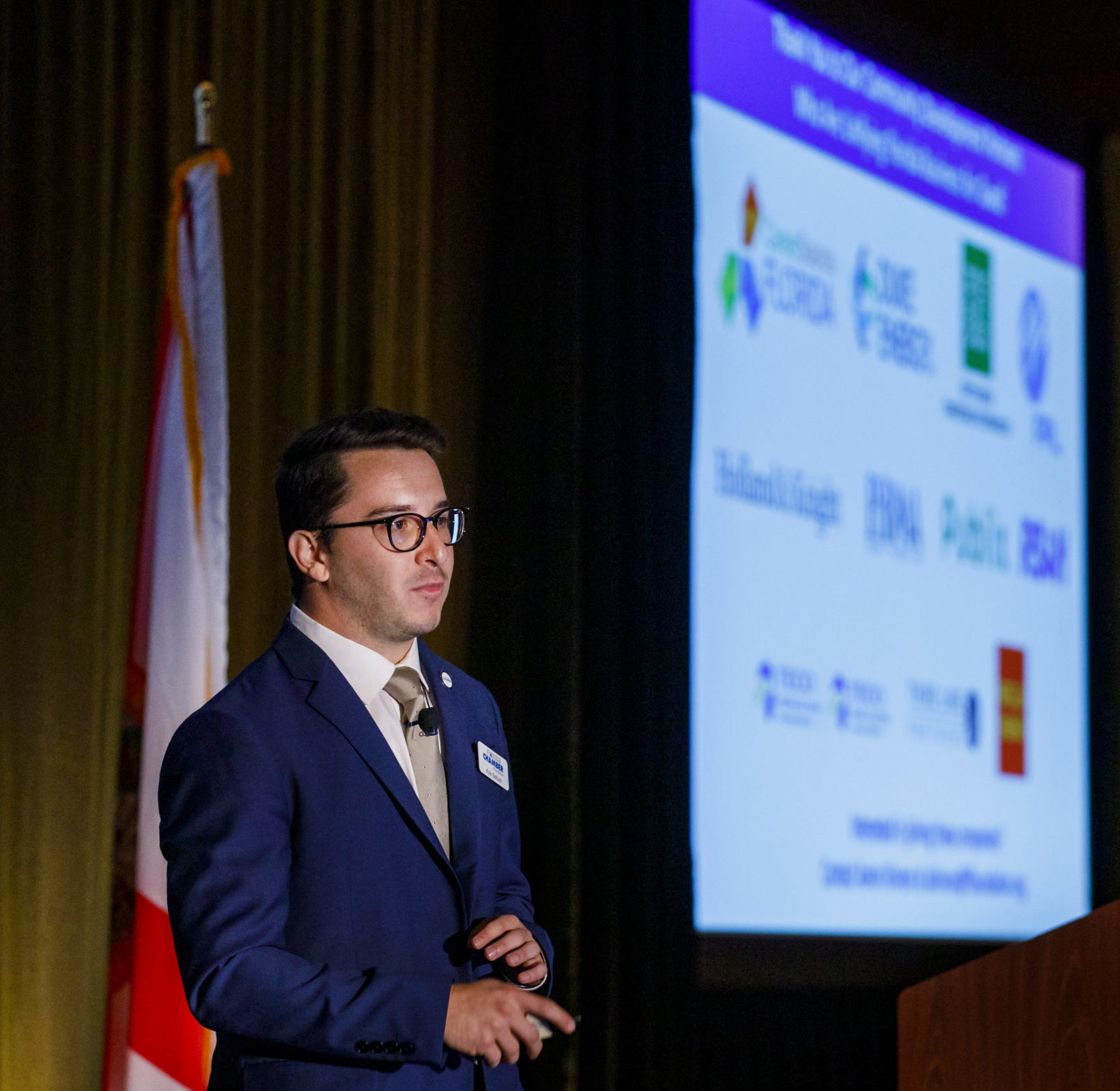
By: Kyle Baltuch, SVP of Equality of Opportunity, Florida Chamber Foundation
With a goal to cut childhood poverty in half, and build a path toward prosperity for all by 2030, the Florida Prosperity Project is focused on ensuring every child has access to the opportunities necessary to break the cycle of generational poverty. In many cases, that means opportunities for their parents as well.
Across Florida, 829,342 children battle the challenges that come with poverty each and every day. Through the Florida Chamber Foundation’s groundbreaking efforts within the Florida Prosperity Project, we have begun to understand what these challenges look like at the zip code level, and work daily with the business and philanthropic community to ensure a path toward prosperity for all children in Florida.
However, as we focus on these long-term efforts, it is important to understand how today’s landscape effects tomorrow’s outcomes. Take unemployment for example. Currently, there are 466,000 unemployed Floridians. While this number is eye-opening, it doesn’t tell the whole story. Additionally, another 113,100 Floridan’s are designated as “Marginally Attached Workers.” While this economic concept is a bit technical, the key point to understand is this – these are individuals that want to, and are available for work, have looked for a job over the past year, but for one reason or another have not looked for work in the past four weeks. Of these 113,100, more than a third (42,100) are designated as “Discouraged Workers,” noting the reason they have not searched for work was due to their belief that there were no jobs available for which they qualified. Additionally, there are 333,800 Floridians with the designation of “Employed Involuntarily Part-Time.” These are workers, who are employed, but only in a part-time capacity and desire a full-time opportunity.
When you look at the true landscape of unemployment, Florida has 579,300 Floridian’s without a job that desire work, and upwards of 913,100 with the desire to work full-time positions in Florida.
This information is vital to our work in the Florida Prosperity Project as long-term unemployment has a dramatic impact on the poverty status for families. A 2012 peer reviewed study, What Happens to Families’ Income and Poverty after Unemployment, found that poverty nearly triples among families that experience unemployment for six months or more. In 2021, the average length of unemployment in Florida was nearly 30 weeks (or roughly seven months).
As we look to combat childhood poverty, and break this vicious cycle that has plagued communities across Florida for more than a century, we cannot afford to lose any ground. As a means to promote prosperity for children now, and into the future, we must come together to support the path back to the workplace for those 579,300 Floridians that are out of work but desire employment.
Fortunately, there are many examples of the Florida business community rising to the occasion. For example, one major challenge keeping Floridians out of the office – childcare, or more accurately, the lack of access to high- quality childcare. The most recent analysis from January 2022 revealed that 340,999 Floridians were not working because they were caring for children not enrolled in school or daycare. Understanding the importance of childcare and family support for those returning to work, Citrix, a Florida Chamber Foundation Prosperity Project Partner, stepped up to the plate for their employees. As part of the compensation package to their staff, the organization provides resources and benefits that support their employees not only as workers, but as parents. In fact, their efforts have been recognized at a national level, and they aren’t alone. A number of other Florida Chamber partners have been named on Fortune’s list of 50 best companies for working parents, including Bank of America, Publix, Navy Federal Credit Union, Marriott, Kimley-Horn, and JM Family Enterprises.
Another major factor keeping employees out of the workplace revolves around the lack of skills. As previously noted, 42,100 Floridians that desire work expressly stated that they believe they lack the necessary qualifications, and another 333,800 Floridians have confirmed they desire a greater level of employment. However, the skills gap challenge doesn’t stop there. Consider this, additional analysis from the January 2022 data release shows that 299,003 Floridians are out of work due to COVID-19-related layoffs or business closures. Many in this pool of talent may desire a transition to a new career, but lack the training necessary to make the switch. On the horizon, the Florida Chamber Foundation’s Future of Work Florida initiative will seek to educate these transitioning workers about the high-quality career opportunities available throughout Florida that are experiencing tremendous demand, but have a relatively low barrier to entry.
One partner in this effort, and a fellow Florida Prosperity Project Advisory Board member, Broward College, has developed an award-winning educational program, Broward UP. Designed to train Floridians to better prepare them for today’s job market, Broward UP has been a tremendous success that has provided no-cost education to more than 3,200 residents throughout the Broward Community.
There is no doubt that Florida’s economy is on fire right now, but we must remember, every good fire requires thoughtful and consistent attention. To ensure Florida experiences healthy and sustained growth, we must continue to support those that desire a career that supports self-sufficiency. If you or your business want to be a part of the solution, we invite you to engage with the Florida Chamber Foundation as we unite the business community for good. Without efforts like those above, Florida’s children, and economy, will continue to suffer.
If your business is focused on the future of Florida, and ensuring every Floridan has an equal opportunity at earned success, connect with me via email at kbaltuch@flfoundation.org, or by phone at 850-521-1218.